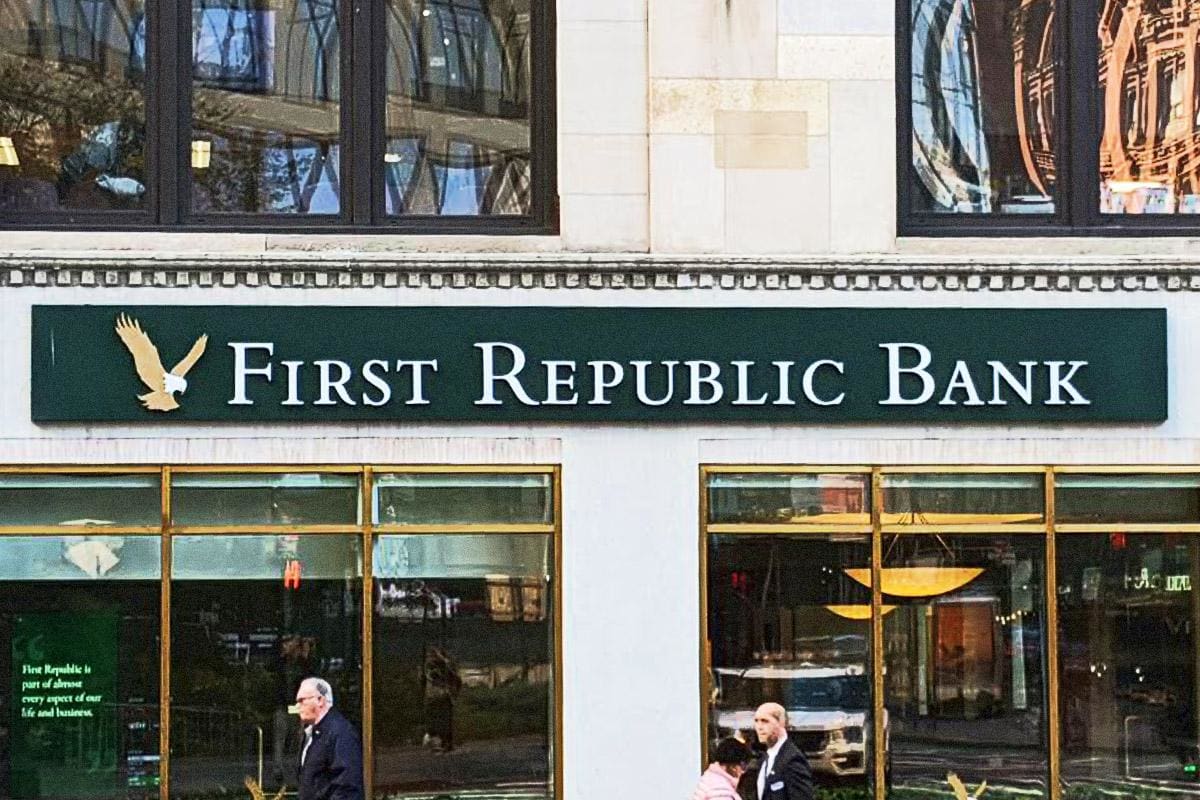
First Republic Bank (FRC) was rescued by 11 U.S. banks on Thursday who promised to provide $30 billion in deposits, giving the California bank additional liquidity as the banking industry continues to face massive setbacks.
"America’s larger banks stand united with all banks to support our economy and all of those around us," the U.S. lenders said in a group statement Thursday.
Concerns about the liquidity of First Republic rose after three banks, Silvergate Capital, Silicon Valley Bank and Signature Bank failed in March.
The rescue plan received vocal support by the Federal Reserve and the U.S. Treasury.
Four banks, including Bank of America (BACXL) , Citigroup (C Get Free Report, JPMorgan Chase (JPM Get Free Report and Wells Fargo (WFC Get Free Report, will each provide a $5 billion uninsured deposit into First Republic Bank.
Goldman Sachs Group (GS Get Free Report and Morgan Stanley (MS Get Free Report will each deposit $2.5 billion while BNY Mellon (BK), PNC Bank (PNC), State Street (STT) ,Truist (TFC) and U.S. Bank (USB) are contributing $1 billion each.
The group of banks said they would leave the deposit amounts at First Republic for at least 120 days, according to terms of the agreement.
The banks will receive the same daily interest as current First Republic clients.
"This action by America’s largest banks reflects their confidence in First Republic and in banks of all sizes, and it demonstrates their overall commitment to helping banks serve their customers and communities," the banks said in a statement. "Regional, midsize and small banks are critical to the health and functioning of our financial system."
"The actions of America’s largest banks reflect their confidence in the country’s banking system. Together, we are deploying our financial strength and liquidity into the larger system, where it is needed the most," the statement added. "Smaller- and medium-sized banks support their local customers and businesses, create millions of jobs and help uplift communities. America’s larger banks stand united with all banks to support our economy and all of those around us."
The San Francisco bank was rumored to be looking for a buyer, according to Bloomberg News
The stock has lost 62% of its value since SVB closed on March 10.
S&P and Fitch Concerned About Uninsured Deposits
The pressure on First Republic Bank has been mounting. The rating companies S&P Global Ratings and Fitch Ratings downgraded the bank on March 15 because they believe that it will be more difficult for the firm to pay its debts.
The two credit-rating companies are concerned about First Republic Bank's amount of uninsured deposits, those accounts that exceed the $250,000 FDIC limit. Holders of these accounts might become concerned and decide to withdraw their money, creating a run on the bank.
The bank's credit rating was lowered to BB+ from A- by S&P Global Ratings, and it remains on CreditWatch negative, meaning S&P could lower the rating further.
"The bank’s business position will suffer after the volatile swings in its stock price and heightened media attention surrounding deposit volatility,” S&P wrote. "Its business stability has weakened as market perceptions of its creditworthiness have declined.”
"We believe the risk of deposit outflows is elevated at First Republic – despite actions by federal regulators."
Shortly after S&P, Fitch lowered the California bank's rating to BB from A-, a step below the S&P rating. Fitch also placed the rating on a negative watch, which, as with S&P, means that it could soon further reduce the rating.
Fitch says the bank has a very high concentration of wealthy customers, which is a "weakness" because their deposits aren't guaranteed. If those wealthy customers panic, it's unclear whether First Republic can respond to their withdrawal requests all at once.
"This not only drives a high proportion of uninsured deposits as a percentage of total deposits but also results in deposits that can be less sticky in times of crisis or severe stress,” Fitch explained
It continued: "Fitch believes this feature of the business model has resulted in franchise erosion following the high profile failures of SVB Financial and Signature Bank, despite the deposit base being more diversified from a sector/industry standpoint.”
First Republic Bank Services
As of Dec. 31, 2022, First Republic Bank had $212.6 billion in assets, according to a news release. Its 2022 revenue was $5.9 billion, up 16.5% from 2021, while the bank recorded 2022 net income of $1.7 billion, up 12.7%.
Founded in 1985, the bank offers private personal banking, private business banking and private wealth management. It's present in eight states: California, Oregon, Massachusetts, Florida, Connecticut, New York, Wyoming and Washington.
FRC has said that its client base is more diverse than that of Silicon Valley Bank, which relied heavily on startups and venture-capital firms in its client base.
Following the setbacks of SVB (SIVB Get Free Report, First Republic Bank in recent days has sought to reassure the public regarding its liquidity. On March 12, the firm said its unused liquidity to fund operations totaled more than $70 billion from agreements with JPMorgan Chase and the Federal Reserve.
"First Republic’s capital and liquidity positions are very strong, and its capital remains well above the regulatory threshold for well-capitalized banks," Jim Herbert, founder and executive chairman, and Mike Roffler, president and CEO, said in a statement. "First Republic continues to fund loans, process transactions and fully serve the needs of clients by delivering exceptional service.”







